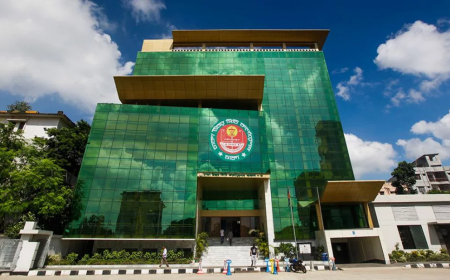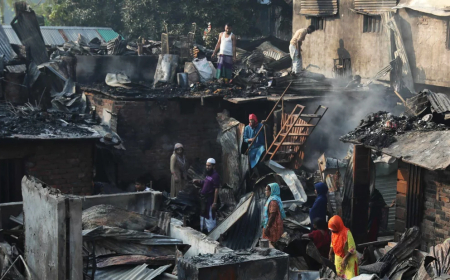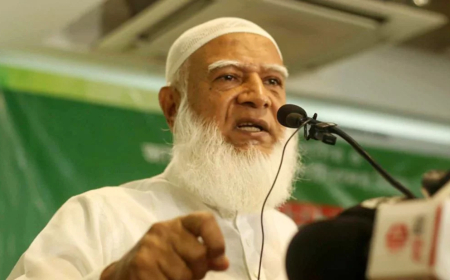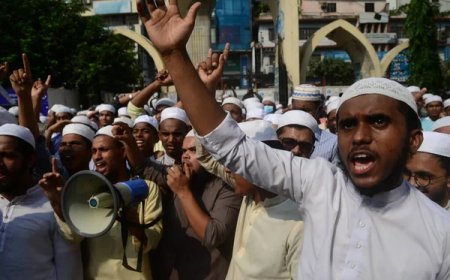Is the Bangladesh Public Service Commission Dead?
An institution can perish through through abdication and silence while the house burns. By every meaningful measure -- the ability to reassure the public, to clarify recruitment, to protect fairness -- the PSC has ceased to function.
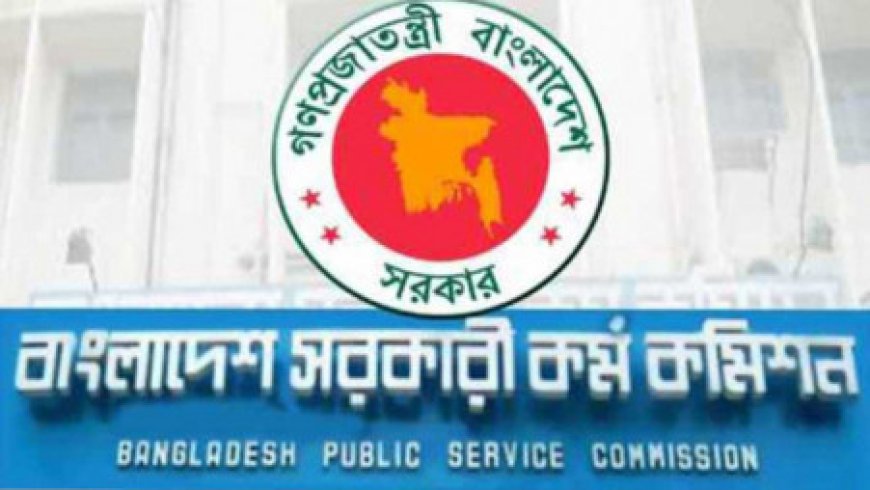
In July last year, when tens of thousands of students took to the streets of Dhaka, Rajshahi, and Chittagong to demand clarity on the quota system in government jobs, the Bangladesh Public Service Commission (BPSC) had a singular opportunity to demonstrate its relevance.
The quota issue -- whether jobs in the civil service should be reserved and on what terms -- is not a side matter for the commission. It lies at the very heart of its constitutional mandate: recruitment to government service.
And yet, between July 1 and July 16, 2024, as campuses turned into battlegrounds and students bled on the streets, the BPSC said nothing.
Instead, the record shows the commission preoccupied with the most banal of clerical tasks. On July 9, it suspended two of its own mid-level officers. On July 14, it issued an appointment letter for a new assistant director and an “office attendance order.”
On July 16, the day a student was shot dead in Rangpur and three more were killed in Chittagong, the commission’s headline act was issuing a no-objection certificate for the renewal of a member’s passport.
The contrast is grotesque: as young Bangladeshis were assaulted by police and ruling party cadres, the nation’s guardian of fair recruitment was signing paperwork for foreign travel.
The story did not end there. This August, as the conflict between B.Sc. engineers and diploma engineers escalated -- paralyzing public works, spilling into the campuses of BUET and polytechnics, and prompting police to deploy tear gas and water cannons -- the PSC again remained silent.
Its website lists its activities during this period: on August 7, permission for a director to travel abroad; on August 11, a notification regarding another officer’s leave; on August 12, a passport no-objection certificate for an administrative officer; and on August 28, yet another leave approval.
All of this while engineers and technologists, both diploma and university-trained, confronted each other over access to government jobs, demanding that the state clarify who may apply for which posts and under what conditions.
It is tempting to dismiss this as bureaucratic inertia. After all, commissions are not known for dynamism. But the silence of the BPSC is more than mere sloth. It is dereliction. Created by the Constitution to ensure impartiality in public recruitment, the PSC is supposed to shield government jobs from political favoritism, rumor, and street violence. Instead, it has abdicated, behaving less like a commission and more like a clerical office, issuing routine NOCs while leaving the nation to convulse over the very rules it is meant to administer.
The consequences have been disastrous. Last year’s July, the lack of institutional clarity allowed rumors to metastasize into unrest. Students, unsure whether the Supreme Court’s status quo order would mean quotas were back, demanded answers from a government unwilling to speak while a commission unable to act looked the other way.
The resulting vacuum was filled by police batons and the muscle of ruling party student organizations. By mid-July, universities were shut down, internet services disrupted, and nearly a dozen people dead. The PSC’s silence did not just coincide with violence; it facilitated it.
The engineer conflict is following the same script. B.Sc. graduates argue that international standards and accreditation demand that only they be recognized as “engineers,” while diploma engineers, backed by decades-old government circulars, insist on their own path to advancement.
At stake are not merely titles, but the career ladders of hundreds of thousands of technologists, engineers, and students across the country. This is exactly the sort of dispute a functioning commission should resolve: by issuing clear, legally grounded guidelines about recruitment rules, grade eligibility, and professional recognition.
Instead, the PSC has washed its hands of the matter, leaving ministries, student groups, and law enforcement to stumble through a crisis that threatens to derail the nation’s infrastructure projects.
Why does the commission hide? One explanation offered in Dhaka’s bureaucratic circles is that the matter is “sub judice” -- before the courts. But this is a flimsy shield. Clarifying the practical consequences of a court order is not contempt of court. Explaining what candidates can expect for an upcoming BCS exam, or what recruitment notices will look like while a case is pending, is not judicial defiance. It is administrative responsibility. By refusing to even speak, the PSC has created a vacuum where mobs and partisan muscle dictate outcomes.
Another explanation is institutional cowardice. Over the years, the PSC has become more secretariat than commission, more file-pusher than constitutional arbiter. Its members are largely anonymous to the public; its statements are rare and perfunctory; its website reads like the notice board of a district office rather than the voice of a guardian institution. In a country where politics is often street theater, the commission has chosen to be invisible. But invisibility is not neutrality. It is abandonment.
The consequences extend beyond the streets. When public recruitment is seen as opaque, politicized, or arbitrary, it erodes the credibility of the civil service itself. Talented young graduates, uncertain whether exams will be fair or whether rules will shift beneath their feet, increasingly look abroad for opportunity. The PSC’s silence thus contributes directly to the brain drain that Bangladesh can least afford.
What would a living commission do? It would have issued a public statement on July 6 last year, when protests first flared, clarifying how the High Court verdict and subsequent Supreme Court stay would be implemented in ongoing recruitment.
It would have convened hearings with stakeholders from both B.Sc. and diploma engineering backgrounds to issue a set of interim guidelines in August, pending the government’s final decision.
It would have explained to the public, in plain Bangla, how recruitment exams work, what qualifications are required, and what the law says. It would have treated public communication not as a luxury, but as its constitutional duty.
Instead, the PSC of 2024-2025 prefers to manage passports.
This is why the question must be asked bluntly: is the Bangladesh Public Service Commission dead?
An institution need not be formally abolished to die; it can also perish through irrelevance, through abdication, through silence while the house burns. By every meaningful measure -- the ability to reassure the public, to clarify recruitment, to protect fairness -- the PSC has ceased to function.
Resurrecting it will require more than cosmetic reform. It will require a change of culture: one that treats transparency as central, not peripheral; one that demands that commissioners stand before the public during crises, not retreat behind circulars. It may even require a new law that obligates the PSC to report quarterly to Parliament and to issue public bulletins whenever recruitment rules are under dispute. Above all, it will require courage -- the courage to speak when the temptation is to hide.
Bangladesh’s young people are not asking for much. They are asking for clear rules, fair exams, and dignity in their chosen professions. When they do not receive answers, they go to Shahbagh, to Rajshahi, to Chittagong. And when they go, the nation trembles.
If the PSC continues to issue only passports and NOCs while students and engineers clash in the streets, then the institution is not merely irrelevant. It is complicit. A dead commission cannot guide a living republic.
Omar Shehab is a theoretical quantum computer scientist at the IBM T. J. Watson Research Center, New York. His work has been supported by several agencies including the Department of Defense, Department of Energy, and NASA in the United States.
What's Your Reaction?












